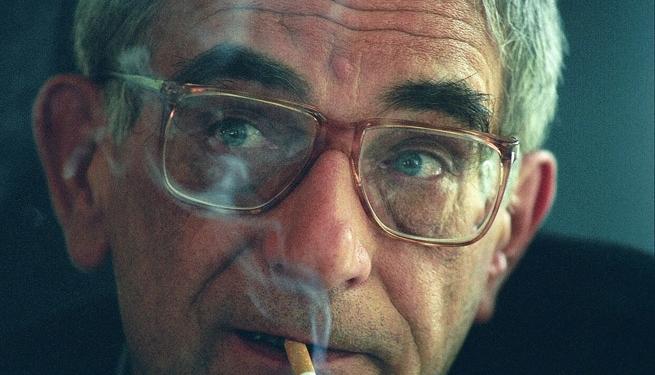
If you think that Season Two of The Wire is as challenging as television gets, you probably haven’t seen The Decalogue. But then, few people have: for a quarter of a century, distributors have scratched their heads over how exactly this ten-hour Polish existential drama series should be presented to the public. It found an appreciative audience with the advent of DVD; but now, to mark its 25th birthday, the ICA is giving Krzyzstof Kieslowski’s masterwork the theatrical presentation it deserves with a two-week screening marathon.
How these ten hour-long mini-films dodged the Soviet authorities and the Catholic Church to make it onto Polish television is only one of the miraculous things about them. In principle, each episode looks at the lives of Warsaw’s working class through the prism of one of the Ten Commandments. But in fact, the dramas we witness are far too complex to be reduced to a simple moral imperative. A loving father accidentally encourages his son to put himself in mortal danger; an adulterous wife rebukes her husband for spying on her; and in the most famous segment, a boy randomly strangles a man, before being executed by the state in similar fashion.
The overall picture is of a society in moral freefall – The Decalogue’s achievement is to point this out without recourse to philosophical abstractions. Each episode is wonderfully immediate, presenting us with an ethical conundrum that we’re all familiar with. It’s delivered in a heightened realism that skilfully balances suspense with a meditative tone. With his Three Colours trilogy, Kieslowski would move into airier, more poetic territory; but it is here that he first established his consummate craft and his mastery of compassionate social drama. Thou shalt worship no other directors before him.
The ten films are screening in pairs, alongside a selection of other Kieslowski films, from November 27 to December 9.
How these ten hour-long mini-films dodged the Soviet authorities and the Catholic Church to make it onto Polish television is only one of the miraculous things about them. In principle, each episode looks at the lives of Warsaw’s working class through the prism of one of the Ten Commandments. But in fact, the dramas we witness are far too complex to be reduced to a simple moral imperative. A loving father accidentally encourages his son to put himself in mortal danger; an adulterous wife rebukes her husband for spying on her; and in the most famous segment, a boy randomly strangles a man, before being executed by the state in similar fashion.
The overall picture is of a society in moral freefall – The Decalogue’s achievement is to point this out without recourse to philosophical abstractions. Each episode is wonderfully immediate, presenting us with an ethical conundrum that we’re all familiar with. It’s delivered in a heightened realism that skilfully balances suspense with a meditative tone. With his Three Colours trilogy, Kieslowski would move into airier, more poetic territory; but it is here that he first established his consummate craft and his mastery of compassionate social drama. Thou shalt worship no other directors before him.
The ten films are screening in pairs, alongside a selection of other Kieslowski films, from November 27 to December 9.
| What | Krzysztof Kieślowski: The Decalogue 25th Anniversary Retrospective |
| Where | Institute of Contemporary Arts, The Mall, London, SW1Y 5AH | MAP |
| Nearest tube | Charing Cross (underground) |
| When |
27 Nov 14 – 09 Dec 14, various |
| Price | £7-11 |
| Website | Click here to go to the ICA website |




